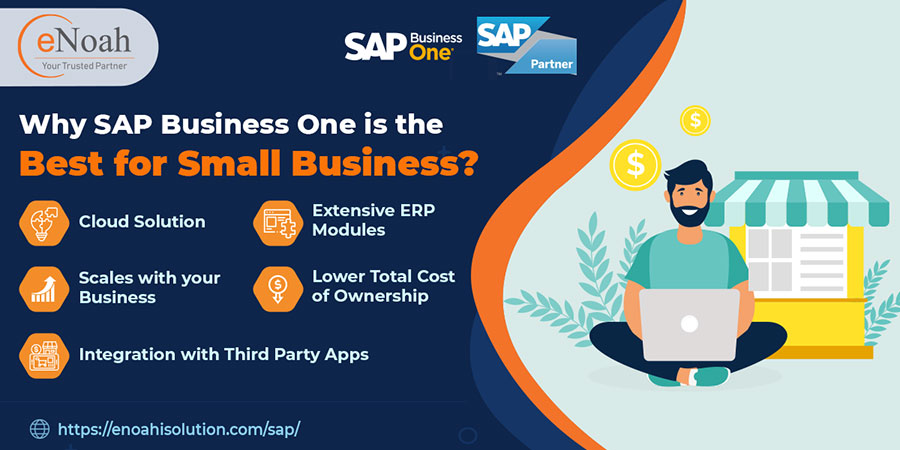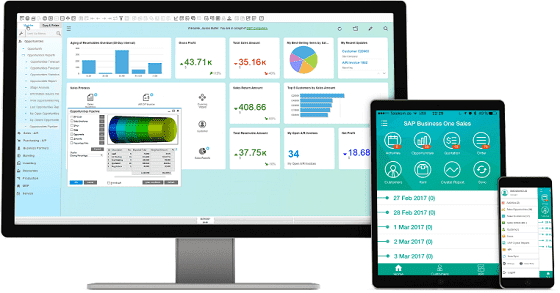 A Guide to Selecting the Right ERP for SMEs
A Guide to Selecting the Right ERP for SMEs

In the dynamic and competitive landscape of today’s business world, Small and Medium Enterprises (SMEs) play a crucial role in driving innovation and economic growth. To stay competitive and streamline their operations, SMEs are increasingly turning to Enterprise Resource Planning (ERP) systems. However, the journey to select the right ERP for SMEs is not without its challenges. This guide aims to illuminate the path to making an informed decision that aligns with the unique needs and goals of SMEs.
The Significance of ERP for SMEs
Enterprise Resource Planning (ERP) systems are integrated software solutions designed to manage and automate various business functions, including finance, HR, inventory, sales, and more. For SMEs, an effective ERP solution can bring a multitude of benefits:
- Operational Efficiency: An ERP system streamlines processes, reduces manual work, and enhances overall efficiency, leading to cost savings and improved productivity.
- Data Visibility: A centralized platform provides real-time insights into business operations, enabling data-driven decision-making and strategic planning.
- Scalability: As SMEs grow, their ERP system can scale to accommodate increased workload, users, and functionalities.
- Enhanced Customer Experience: A well-implemented ERP can lead to better customer service by providing timely and accurate information to customers.
- Compliance and Reporting: Many industries require adherence to regulatory standards. A robust ERP can help SMEs maintain compliance and generate necessary reports.
Key Considerations for Selecting the Right ERP
Choosing the right ERP system is a pivotal decision that requires careful consideration. Here are key factors SMEs should take into account:
- Understand Your Needs:
- Begin by identifying the pain points and challenges within your current business processes. What specific functionalities are lacking? What improvements are you aiming to achieve? This understanding will guide your selection process.
- Scalability:
- Consider the growth trajectory of your SME. Will the chosen ERP system be able to accommodate increased demands and complexities as your business expands?
- Deployment Options:
- ERPs can be on-premise, cloud-based, or hybrid. Cloud-based solutions often offer flexibility, lower upfront costs, and automatic updates. Assess which deployment option aligns with your IT strategy.
- Functionality:
- List down the essential features your business requires. This could range from financial management and inventory control to CRM and reporting. Evaluate whether the ERP system can cater to these needs.
- Customization:
- Every SME has unique processes. Determine if the ERP system can be customized to match your specific workflows. However, strike a balance between customization and complexity, as excessive customization can lead to longer implementation times and higher costs.
- Integration Capabilities:
- SMEs often use multiple software solutions. Ensure that the ERP can seamlessly integrate with your existing systems to avoid data silos and enhance overall efficiency.
- Ease of Use:
- A user-friendly interface is crucial for user adoption. Complicated systems can lead to resistance from employees, hindering the benefits an ERP can offer.
- Vendor Reputation:
- Research the ERP vendor’s reputation, customer reviews, and support services. A reliable vendor will provide ongoing assistance, updates, and troubleshooting.
- Total Cost of Ownership (TCO):
- Consider the total cost of implementing and maintaining the ERP system over its lifecycle. This includes licensing fees, implementation costs, training, and ongoing support.
- Implementation Timeframe:
- Understand the estimated implementation timeline. A shorter implementation can lead to quicker ROI, but rushing the process might compromise quality.
Seeking Expertise: ERP Implementation Partners
For SMEs embarking on an ERP journey, seeking the assistance of an ERP implementation partner can be invaluable. These experts bring experience, best practices, and a structured approach to ensure a successful implementation. They can assess your needs, recommend suitable ERP solutions, customize the system, and provide training for your team.
Conclusion
Selecting the right ERP for SMEs requires careful analysis, a clear understanding of business needs, and a commitment to long-term success. The benefits of enhanced efficiency, improved decision-making, and streamlined processes make the endeavor worthwhile. By considering the factors mentioned above and potentially partnering with ERP implementation experts, SMEs can navigate the complexities of the selection process and set themselves up for growth and prosperity in the digital age.
eNoah stands out as the embodiment of expertise, offering a proven track record of guiding SMEs towards successful ERP implementations. With a deep understanding of the unique needs of SMEs and a thorough grasp of diverse industries, eNoah possesses the acumen to seamlessly assess requirements, recommend fitting ERP solutions, tailor systems to match specific workflows, and deliver comprehensive training to the team.


